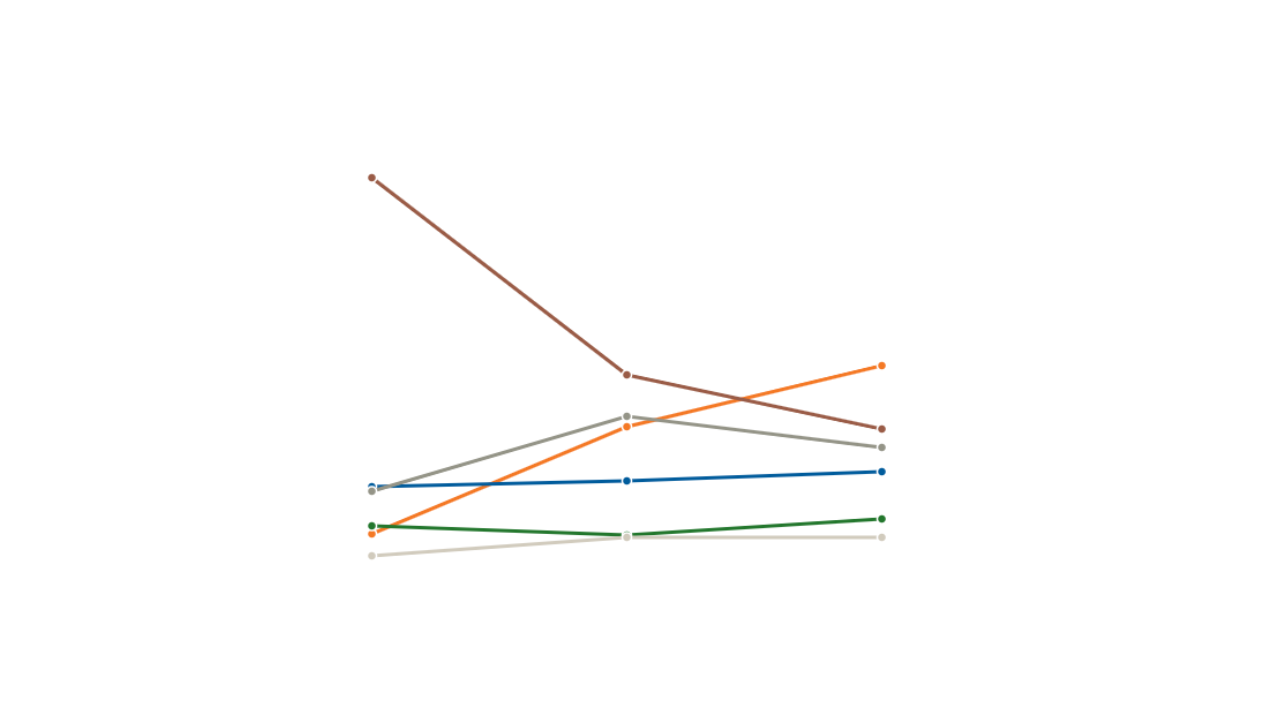Free Trade and Market Access: Americas Quarterly Issue Launch
Free Trade and Market Access: Americas Quarterly Issue Launch
“Now is not the time to relinquish our historic leadership on trade in the hemisphere—it’s the time to renew it," said keynote speaker Senator John McCain before a panel on trade issues affecting the Americas.
Keynote Speaker
- Senator John McCain (R-AZ)
Introduction
- Ambassador John Negroponte, Chairman, Americas Society/Council of the Americas and former Deputy Secretary of State
Panelists
- Ed Gresser, Acting President and Director for Global Trade and Global Markets, Democratic Leadership Council
- Christopher A. Padilla, former Under Secretary for International Trade, U.S. Department of Commerce, and Vice President for Governmental Programs, IBM Corporation
- William C. Lane, Director for Governmental Affairs, Caterpillar Inc.
- Jeff Schott, Senior Fellow, Peter G. Peterson Institute for International Economics
- Christopher Sabatini, Editor-in-Chief, Americas Quarterly and Senior Director of Policy, Americas Society/Council of the Americas
- Eric Farnsworth, Vice President, Americas Society/Council of the Americas (moderator)
Summary:
On Wednesday, February 9, Americas Quarterly marked the first issue of its fifth year in publication, launching an edition focused on free trade and market access. Given the recent momentum of discussions about trade in Congress and by U.S. President Barack Obama, AS/COA held a public panel at the National Press Club in Washington DC with commentary from U.S. Senator John McCain (R-AZ), business leaders, and top scholars.
Renewing leadership in the Americas
Having wrapped up a recent trip to Colombia, Chile, Panama, and Brazil, Senator McCain urged quick approval of the pending Colombia and Panama FTAs. (Later in the morning, U.S. Trade Representative Ron Kirk testified on the subject before the House Ways and Means Committee.) While noting that U.S. partners in Latin America are succeeding because of our shared values, McCain emphasized the need for a concrete action plan by the federal government to push through the pending agreements. Put simply, he said the pacts “should have been passed yesterday.” McCain noted that U.S. companies have paid some $3.2 billion in import tariffs and that U.S. companies have lost $800 million in revenue to countries that trade freely with Colombia in particular. He dismissed objections of some members of Congress against ratifying the Colombia FTA, stating that Colombia’s security transformation under the U.S.-supported Plan Colombia is “nothing short of a miracle.” The Andean trade preferences are due to expire this weekend, and Senator McCain called their expiration and the U.S. failure to pass the FTA “a double slap in the face for Colombia.” Senator McCain concluded by saying: “Now is not the time to relinquish our historic leadership on trade in the hemisphere—it’s the time to renew it.”
Misinformation on free trade
In the subsequent discussion, panelists debated the calculus of the pending FTAs in the Obama administration and 112th Congress. Noting the Charticle in the recently published issue of AQ, Editor-in-Chief Christopher Sabatini said states’ congressional representatives who vote against FTAs despite the economic benefits to their constituents were “free riding.” Jeff Schott of the Peterson Institute for International Economics noted that the ratio of U.S. trade to GDP is roughly triple what it was a generation ago, and that foreign consumers want to buy U.S. goods but are beginning to look elsewhere for cheaper products. The Democratic Leadership Council’s Ed Gresser pointed out that the wording of poll questions may give Americans the wrong idea of the purpose of free trade. Two recent surveys conducted on the subject of trade showed that 57 percent of respondents answered “yes” when asked if they approve agreements that lower trade barriers but just 17 percent agreed with the notion that FTAs help the U.S. economy.
When asked by an audience member why panelists believe the media outlets are not doing a better job of articulating the benefits of free trade, Schott replied that the average American isn’t thinking about international commerce given the everyday problems at home. William Lane of Caterpillar, Inc. said that while the U.S. has an overall trade deficit in manufactured goods, it has a trade surplus in manufactured goods with FTA signatory partners. He argued that the average American simply doesn’t understand the benefits of free trade and how increased market access helps U.S. businesses. IBM’s Christopher Padilla said that President Obama is better suited than his predecessors to “stamp his legacy” on achieving ratified FTAs because of his international orientation and personal background.
How does free trade help the private sector?
Padilla also noted that the only ways to increase exports are to pass FTAs and drive down the value of the dollar. He believes that as long as the paralysis in the trade debate continues, U.S. business will be harmed—and American workers affected. Padilla singled out the Colombia FTA by saying that it was signed “1,541 days ago” and the Obama administration needs to take ownership of the issue to see its passage through Congress. He suggested setting a deadline for ratification with Colombian President Santos, so that an end date is in sight for the American and Colombian public.
Lane informed the audience that Caterpillar’s exports to Chile have tripled since the implementation of the U.S.-Chile Free Trade Agreement in 2004. Colombia, meanwhile, is an even bigger market; it was Caterpillar’s eighth-largest market in 2010, despite the fact that each of the company’s manufactured products is subject to a 10-percent import tariff. Lane said these tariffs hinder businesses in general from investing further and could otherwise be directed to saving or creating American jobs. He said the three pending agreements should be passed in the same timeframe, likening the passage of the South Korea FTA but not those of Colombia and Panama to “kicking a field goal on second down.”








